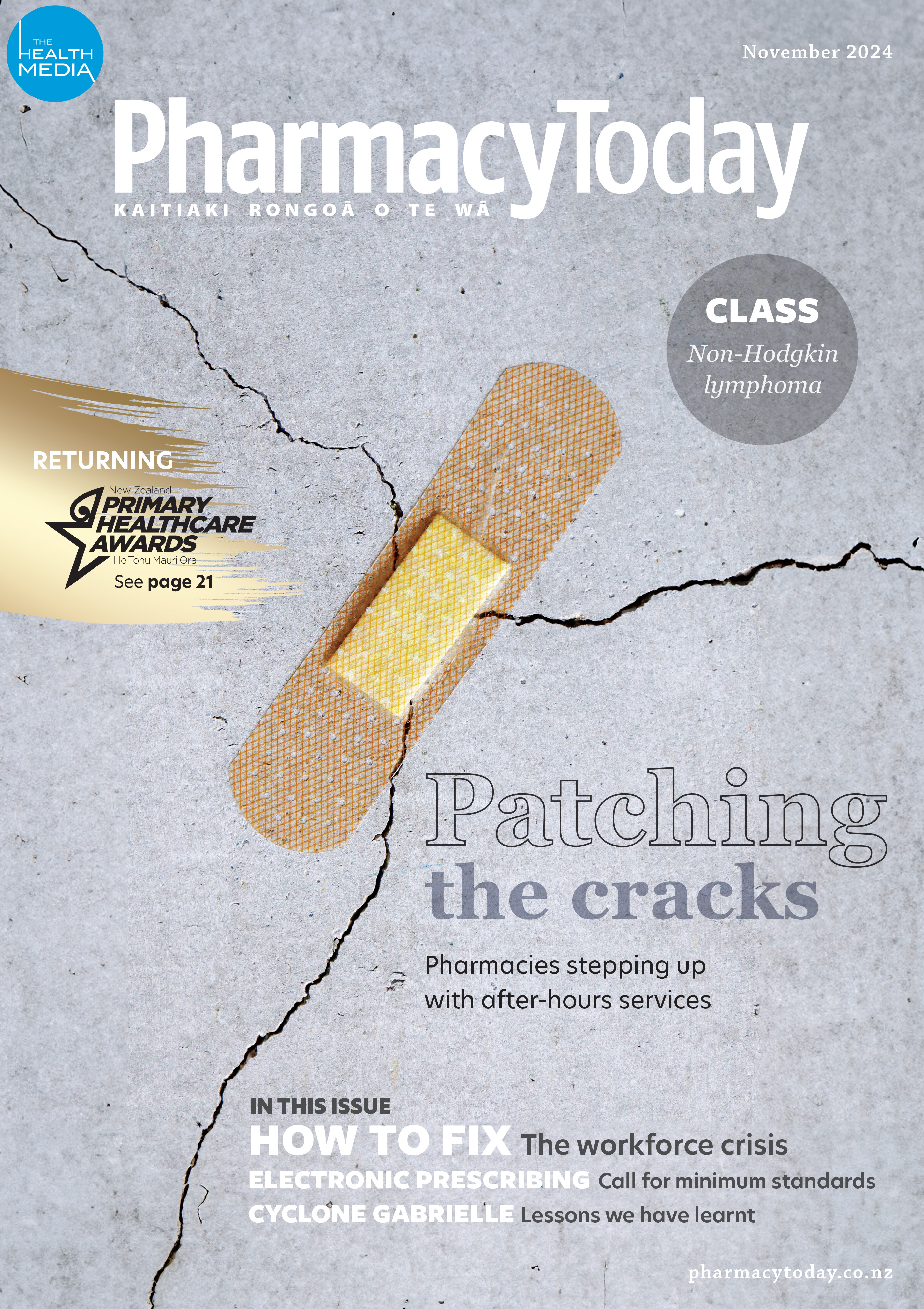Academic pharmacist Nataly Martini highlights the importance of understanding non-Hodgkin lymphoma and pharmacists’ roles in managing this condition
Pharmacists struggle to provide quality care as pressures mount, survey reveals
Pharmacists struggle to provide quality care as pressures mount, survey reveals

- PSNZ's annual workforce survey is out today.
- It shows the majority of pharmacists are being seriously impacted by the workforce crisis.
- 51 per cent of respondents plan to leave the profession within five years.
Pharmacy feels so undervalued and unrespected right now. We feel kicked and punched with no light at the end of the tunnel. We deserve so much more, and it is tiring and unfair
The pharmacy profession is under unsustainable pressure and patient care is suffering, according to PSNZ’s annual workforce survey.
The report, released today, shows pharmacy staff nationwide struggle with unsustainable workloads, inadequate funding and supply chain shortages.
At the same time, stressed patients are increasingly responding to these pressures with ill-temper and aggression.
The survey was conducted in June and July and received 431 responses from PSNZ members. The majority (327) worked in community pharmacies, 44 were in hospital pharmacies, 30 were pharmacists in general practices, and 30 were in non-patient-facing roles.
Some key findings are:
- 94 per cent of community pharmacy, 90 per cent of hospital pharmacy, 74 per cent of general practice and 82 per cent of non-patient-facing respondents have experienced staff shortages
- 66 per cent of community pharmacy, 55 per cent of hospital pharmacy, 50 per cent of non-patient-facing and 36 per cent of general practice respondents say work has negatively impacts their mental health and wellbeing
- an 80 per cent increase in requests from community pharmacy patients unable to access general practice
- a 54 per cent increase in requests for healthcare advice for minor conditions from community pharmacy patients and a 43 per cent increase in requests for healthcare advice for more serious conditions from community pharmacy patients
- a 59 per cent increase in delays in dispensing prescriptions sent to community pharmacies
- 85 per cent of community pharmacy staff reported dealing with medicine supply issues multiple times per day
- 65 per cent of hospital pharmacy staff say patient health is being put at risk due to delays caused by medicine supply issues.
The workforce pressures mean pharmacists are struggling to provide quality services to patients, with 94 per cent of community pharmacists and 88 per cent of hospital pharmacists reporting having less time to spend with patients, 86 per cent of community pharmacy staff reporting delays in dispensing scripts and 88 per cent of hospital pharmacists revealing a reduction in the clinical services offered.
Respondents also reported that the transition to electronic scripts has not improved patient health outcomes, and frequent phone inquiries about scripts and prescription errors were disrupting workflow.
Almost half (45 per cent) of community pharmacists say they considered leaving the profession during the past year and almost a third (30 per cent) have considered shifting from their current employer.
The most reported contributors to negative mental health in community pharmacy were inadequate staffing, long working hours, a lack of work-life balance, lack of rest breaks and Pharmacy Council recertification requirements.
When asked where they saw themselves in five years, 51 per cent said they would no longer be in pharmacy.
“Pharmacy feels so undervalued and unrespected right now. We feel kicked and punched with no light at the end of the tunnel. We deserve so much more, and it is tiring and unfair,” one respondent wrote.
“I have staff wanting inflation-adjusted pay rises, and I can’t do it. I don’t get enough to pay their weekly wages, especially on a five-week pay month. I had one wage round in March and another again in April, which I couldn’t pay for. There wasn’t enough money in the account. Stressful and extremely upsetting for me,” one owner wrote.
“I will continue to work part-time in pharmacy for another six months as agreed with the sale of the shares and, honestly, at that point, will be looking for a change of career. Disillusioned, disappointed and nothing to show for all my effort,” wrote another respondent who had sold their shares in a pharmacy.
PSNZ president Michael Hammond says pharmacists are crucial to the health system and the survey findings represent a threat to the entire health system.
The profession needs significant financial and professional support and relevant legislation needs to be updated to reflect modern practices, Mr Hammond says.
PSNZ will begin a campaign next week aimed at “telling the story” of pharmacy to funders, decision-makers and the mainstream media. This will build on the information from the workforce survey.
The society will also work with other pharmacy sector leaders to ensure that the pharmacy sector has a united voice when it speaks about its issues.
Mr Hammond says PSNZ is also about ready to announce a package of support resources for members. He expects this will be ready in the next few weeks.
When asked if pharmacists should engage in widespread protest or industrial action to pressure funders to address their concerns, Mr Hammond says it is better to “work in a collegial way and talk about how we can be part of the solution and show what pharmacy has to offer”.
If the pressures are not addressed, patient care may be impacted and patient outcomes might suffer, he says.
The general practice sector group GPNZ wholeheartedly endorses PSNZ’s call for more funding and professional support across the health system.
“The society’s findings, combined with GPNZ’s own research and experiences, paint a confronting picture that our whole system is on the brink of collapse,” GPNZ chair Bryan Betty says in a media release.
“Funding and workforce pressures mean that services are under threat across New Zealand, and the impact is being felt most in some of our most vulnerable and high-needs communities,” Dr Betty says.
“We need to reorient our health system towards keeping people well, not just caring for them when they get sick, which requires a major shift of focus and funding towards primary care.”







